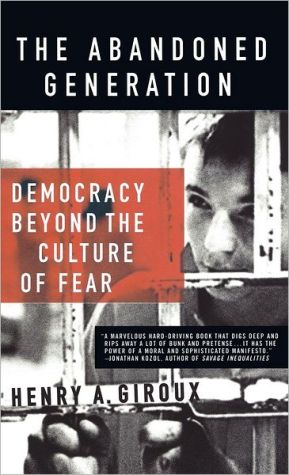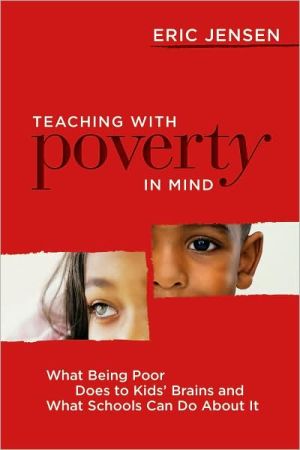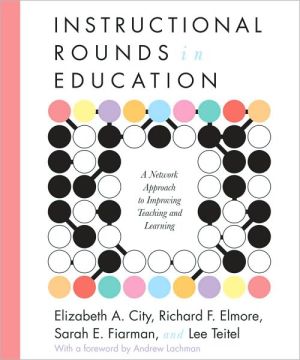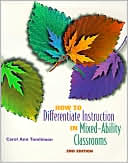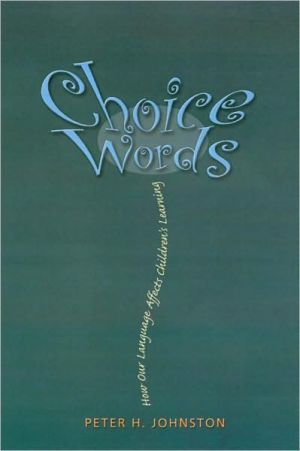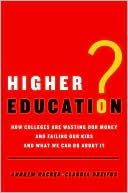The Abandoned Generation: Democracy Beyond the Culture of Fear
Henry Giroux continues his critique of the US political and popular culture 's influence on the lives of our children.\ In his controversial new book, Giroux argues that the US is at war with young people. No longer seen as the future of a democratic society, youth are now derided by politicians looking for quick-fix solutions to crime and demonized by the popular media. This perception of fear and disdain is being translated into social policy . Instead of providing a decent education to...
Search in google:
Henry Giroux continues his critique of the US political and popular culture 's influence on the lives of our children.In his controversial new book, Giroux argues that the US is at war with young people. No longer seen as the future of a democratic society, youth are now derided by politicians looking for quick-fix solutions to crime and demonized by the popular media. This perception of fear and disdain is being translated into social policy . Instead of providing a decent education to young people, we offer them the increasing potential of being incarcerated. Instead of guaranteeing them decent health care, we serve them more standardized tests. There's a war on in the US these days, and Giroux sees our youth as the target. The Washington Post Giroux, a professor of education at Penn State University and the author of several previous books on youth topics, rails against an America that he believes "is at war with young people." When not fetishizing kids via ads and marketing ploys, he says, we portray them as "a problem, a danger to adult society or, even worse, irrelevant to the future." The result, Giroux argues, is a "culture of fear" that denies kids any hope for a decent future. — Nick Gillespie
AcknowledgmentsIntroduction: The War Against Youth in the Post-9/11 EraCh. 1Public Time versus Emergency Time: Politics, Terrorism, and the Culture of Fear1Ch. 2Democracy, Patriotism, and Schooling After September 11: Critical Citizens or Unthinking Patriots?16Ch. 3Global Capitalism and the Return of the Garrison State: Rethinking Hope in the Age of In-Security46Ch. 4Leaving Most Children Behind: Public Education Under Siege71Ch. 5Teen Girls' Resistance and the Disappearing Social in Ghost World103Ch. 6From "Manchild" to Baby Boy: Race and the Politics of Self-Help121Ch. 7Higher Education, Inc.: Training Students to Be Consumers153Notes198Index231
\ The Washington PostGiroux, a professor of education at Penn State University and the author of several previous books on youth topics, rails against an America that he believes "is at war with young people." When not fetishizing kids via ads and marketing ploys, he says, we portray them as "a problem, a danger to adult society or, even worse, irrelevant to the future." The result, Giroux argues, is a "culture of fear" that denies kids any hope for a decent future. — Nick Gillespie\ \ \ \ \ Publishers WeeklyIn this critique of the American political and economic systems' influence on the lives of the country's youth, Penn State education professor Giroux argues for his long-standing, leftist social agenda within the context of the current political climate. He berates President Bush for his "war on terrorism," which he argues diverts funding and the public's attention from more basic concerns. "Security also means healthy, educated, and safe children," he writes, "and terrorism also includes what can be called the 'terrorism of everyday life,'... the suffering and hardships experienced by millions of adults and children who lack adequate food, health care, jobs, child care, retirement funds, and basic living quarters." Furthermore, the antiterrorist campaign "depoliticize[s] politics itself," harming the very democracy by which this country defines itself. After the opening chapters, the author loses his timely post-September 11 hook and digresses about the privatization of public schools and the commodification of higher education, and their downside for the country's youths. His writing is strongest when he stays close to the facts, offering statistics and monetary figures to back his critique of the government. Contrarily, it's reductive and ineffective when he devotes entire chapters to dissecting single Hollywood movies (e.g., Ghost World and Baby Boy) for insight into American culture. Though Giroux supports his opinions with quotes from the Children's Defense Fund and philosopher Jacques Derrida, his tone is often heavy-handed and too academic. The book may appeal only to those already in the same political camp. (May) Copyright 2003 Reed Business Information.\ \ \ Library JournalLeftist social and cultural critic Giroux (Stealing Innocence: Corporate Culture's War on Children) has written numerous books on the destructive impact of globalization, consumerism, and market economics on our society. Here, he focuses his attention on what he perceives to be the exploitation of youth as a way to further the goals of global capitalism, often echoing and elaborating on ideas from those earlier works. Frequently quoting like-minded social critics, he argues that the U.S.-led post-9/11 "war on terrorism" is an attack on democracy and on "our most vulnerable youth." He severely criticizes the Bush administration for irreparably harming public education by defederalizing and decreasing education spending and tying the disbursement of these funds to "teacher accountability." Giroux also blames the media for creating and reinforcing ethnic, racial, and gender stereotypes; he meticulously analyzes and criticizes two recent films-Ghost World and Baby Boy-for resolving conflicts by focusing on character deficiencies rather than societal causes. Finally, he takes on the "corporatization of higher education," claiming that corporate values and goals have replaced their educational counterparts. Giroux's narrative mixes reasoned analysis with simplistic polemics and is characterized by long and involved sentences and some jargon. An optional purchase for larger public and academic libraries.-Jack Forman, San Diego Mesa Coll. Lib. Copyright 2003 Reed Business Information.\ \
